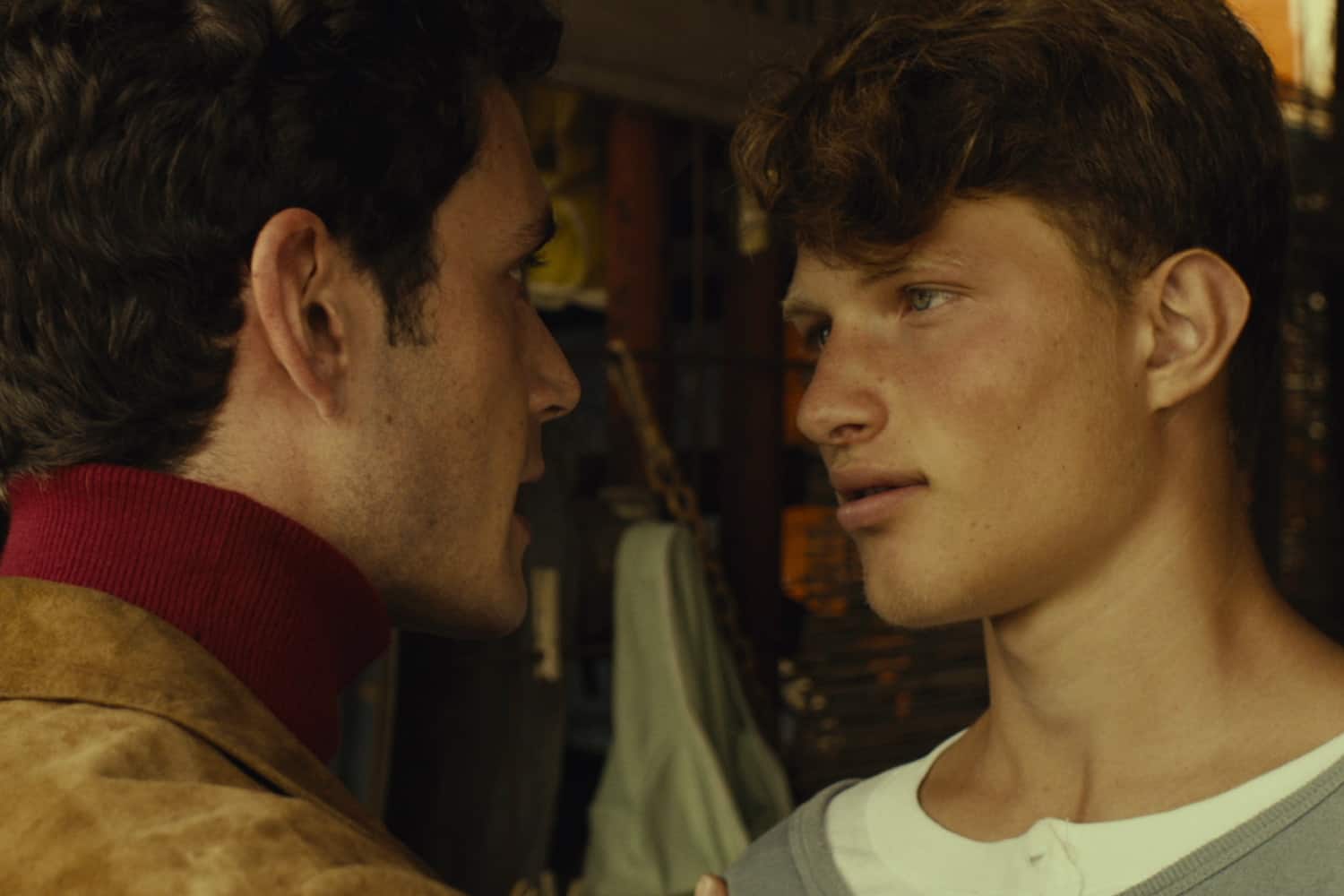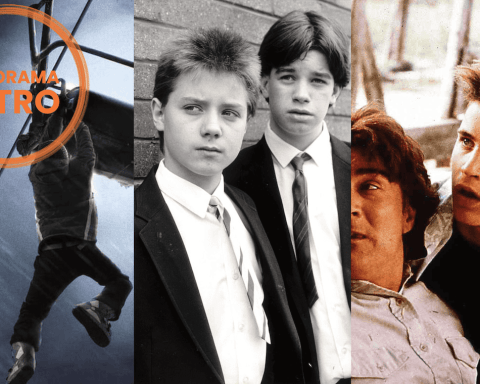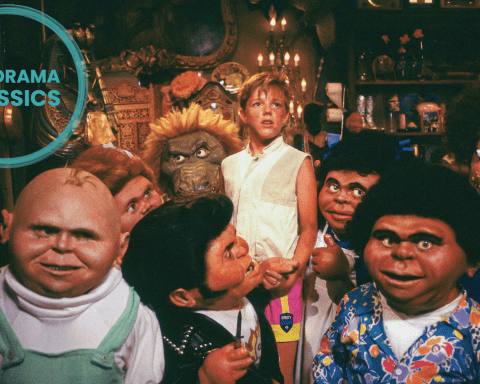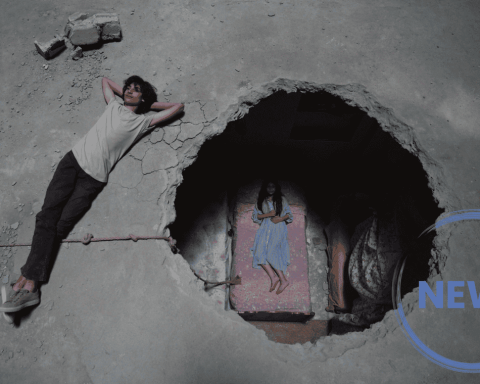The Italian Boys will be released on 18th October 2020
From the Adriatic’s rugged coastline to the Mediterranean’s clear blue waters, The Italian Boys weaves a rich tapestry of enthralling LGBTQ+ stories. Each film in NQV’s new collection emanates the neorealist beauty and diversity of Italian cinema at its very best. This stunning collection explores themes from regret to early desire and freedom while bathing us in Italian cinema’s trademark energy, sexuality and artistry.
The Italian Boys opens with the stunning Uproar (Pipinara), directed by Ludovico di Martino. The year is 1975, and a group of young men wander through life, earning cash through petty crime, on the streets of Rome. But, when one young man accepts an invitation to enter the world of prostitution, events take a darker turn. Here, the games of adolescence are replaced by a night that will lead to the death of a famous director, just as his latest film premieres – the violence of his final moments an echo of the brutality of his last picture, Salò, or the 120 Days of Sodom.
Next is Tidal Time (L’ora di Porto), directed by Dario di Viesto, a story of love, control and loss on the rugged Italian coast. Our story opens with a father and his young son embarking on a fishing trip on a glistening moonlit sea. But what starts as a standard fishing trip soon becomes a moment of near tragedy as the young boy falls overboard, his father diving into the water to rescue him. However, as the boy grows into a young man, his father’s overly protective nature fragments their relationship as the undercurrents of his emerging sexuality swim to the surface.
The undercurrents of emerging sexuality also find a voice in our third film, The Dummy (Il manichino), directed by Renato Muro. Here, a young boy is enthralled and fascinated by a discarded shop mannequin. The chiselled body of the expressionless male dummy captivates the boy through the window of his apartment block as it lies broken, damaged and abused. But as the young boy’s interest grows, so does a belief that he must save the dummy at all costs. Here, the first glimmers of sexuality and desire are caught in a childhood dream of wonder and imagination.
Sometimes, our first feelings of sexual desire are suppressed as we journey into teenage and adult life. The reasons for this are varied, from family barriers to career choices and beliefs, but the result can lead to a life lived in mental instability, where our sexuality is kept firmly under lock and key. These themes find a voice in our fourth film, Lazarus Come Out (Lazarus vieni fuori), directed by Lorenzo Caproni.
Local priest Don Valter cares deeply for his parish, his life bound in a series of traditions and beliefs. However, when an ex-altar boy studying at university arrives with a troupe of actors at his door, the priest is caught off-guard. The youngsters quickly announce that they wish to stage a performance of The Rebirth of Lazarus, with Don Valter confused but encouraging of their artistic wish. However, as the performance gets underway, old feelings and emotions bubble to the surface, unlocking feelings and desires long buried.
Finally, Glue (Colla), directed by Renato Muro, explores the boundaries of friendship, the first sparks of love, and embers of regret. Domenico sits on the verge of adulthood, his tumultuous adolescent years ending. Seeking solace, Domenico visits his best friend Antonio’s house but soon finds himself alone with Antonio’s younger brother, Lallo, a boy who is just starting his journey into teenage life. But as Lallo and Domenico spend a day revelling in playful pranks, swimming and conversation, one boy’s youthful optimism sets the other free from the pain of regret.











